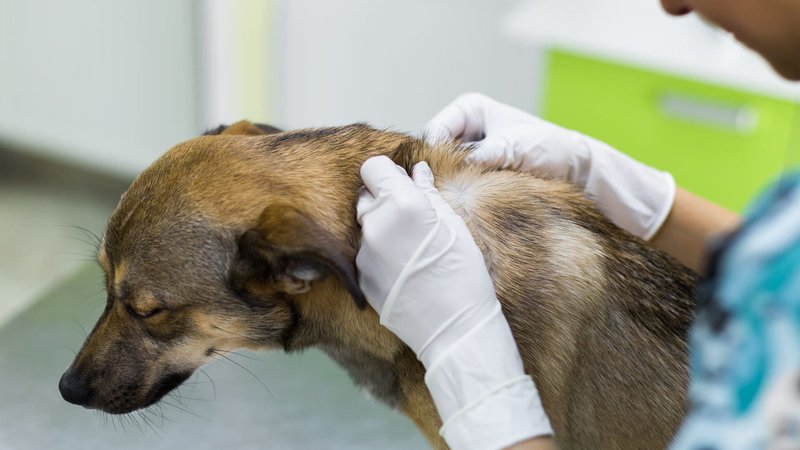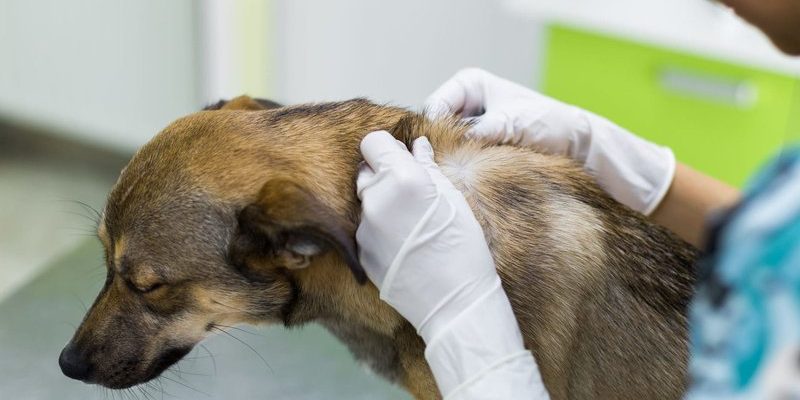
So, what exactly are wolf worms? Honestly, they’re not as scary as they sound; they’re actually the larvae of certain flies that can burrow into your dog’s skin. You might be thinking about how to keep your pup safe from these little invaders. Let’s dive into some simple, effective strategies to prevent wolf worm infestations in outdoor kennels so you can keep your furry friend happy and healthy.
What Are Wolf Worms and How Do They Infest?
Wolf worms, also known as **cuterebra**, thrive in outdoor environments. They start as eggs laid by flies, which then hatch when they come into contact with the warmth of a dog’s body. Once the larvae invade, they burrow into the skin, leading to infections that can be quite painful.
You might wonder how these little guys find their way to your pup. It often starts when dogs are sniffing around or playing in grassy or wooded areas. As they explore, the eggs can attach to their fur or skin, and eventually, they burrow in—yikes! This is why it’s vital to keep your kennel environment safe and clean.
Testing for infestations is key. If you notice your dog is scratching or seems uncomfortable, it might be time for a closer inspection. Early detection can make a world of difference in keeping your dog healthy.
Choosing the Right Location for Your Kennel
Location is everything when it comes to preventing wolf worm infestations. Setting up your outdoor kennel in a well-drained area, away from tall grass or dense foliage, can significantly reduce the chances of infestations.
Think about it like this: a kennel placed in an open spot is like putting your dog in a safe bubble, away from the naughty critters that can cause trouble. Ideally, keep the kennel at least a few feet away from dense vegetation. This doesn’t just help with wolf worms, but also protects against other pests like ticks and fleas.
You might also want to consider the presence of other animals. Stray cats, rabbits, or other wildlife can carry wolf worm eggs. So, if you notice a family of foxes or raccoons hanging out nearby, it might be time to rethink your kennel’s location.
Regular Cleaning and Maintenance
Keeping your outdoor kennel clean is one of the most effective ways to ward off wolf worms. Just like you wouldn’t want to live in a messy space, your dog deserves a tidy environment too. Regular cleaning helps eliminate any potential breeding grounds for parasites.
Start by sweeping or raking the area around the kennel daily to remove any debris, like leaves or animal droppings. You can use a hose to wash down surfaces every week. Consider using a pet-safe disinfectant to keep germs at bay. Here’s a quick cleaning checklist:
- Remove any bedding materials that may harbor eggs.
- Wash food and water bowls regularly.
- Inspect the kennel for signs of pests.
- Replace or disinfect any questionable items.
Making cleaning a routine task not only protects against wolf worms but also creates a healthier living space for your dog.
Keeping the Kennel Area Clear
A clutter-free environment in and around the kennel can go a long way in preventing wolf worm infestations. You might be surprised at how simple organization can help.
Start by trimming back any overgrown bushes or tall grass near the kennel. These areas can often become nests for flies looking to lay eggs. Creating clear paths around the kennel also helps you spot potential threats more easily.
Additionally, avoid leaving any food scraps out, as these can attract pests. Consider using raised feeding stations, which can be easier to clean and less appealing to flying insects.
Using Preventive Treatments
You may not realize it, but preventive treatments can be a game-changer. Just like you’d put sunscreen on before heading out on a sunny day, using pest-repellent treatments for your dog can help keep wolf worms at bay.
Speak with your veterinarian about using topical treatments or sprays that are designed to repel flies and other insects. Some products are specifically formulated to deter wolf worms and can be applied safely to your dog’s skin.
You can also explore vaccinations or medications that may offer additional protection. Here’s the thing: it’s always better to be proactive than reactive when it comes to your dog’s health!
Monitoring Your Dog’s Health
Regular health check-ups for your dog are essential, especially if you’re concerned about wolf worms. Keep an eye out for any changes in behavior, such as excessive scratching, swelling, or lesions on the skin.
You might want to create a health log to track any unusual signs or symptoms. If you notice anything suspicious, don’t hesitate to call your vet. Early detection and treatment are vital to preventing any serious issues.
It’s also a good idea to keep your dog’s vaccinations and preventive medications up to date. A healthy dog is less likely to suffer from infestations, so stay on top of their health routine!
Creating a Safe Environment
Finally, fostering a safe outdoor environment is crucial. Think about adding barriers like fencing to keep stray animals away. You might also invest in insect-proof fencing, which can help minimize the risk of flies entering the kennel area.
Planting certain plants, such as **marigolds** or **lavender**, can also deter flies naturally. These plants not only keep the area smelling great—they also add a lovely touch to your outdoor space!
By focusing on creating a safe environment, you can help ensure that your dog enjoys their time in the great outdoors without worrying about pesky wolf worms.
In conclusion, preventing wolf worm infestations in outdoor kennels involves a mix of good location, regular maintenance, and preventative care. With a little effort and awareness, you can keep your furry friend safe and healthy. After all, a happy dog is a healthy dog!

